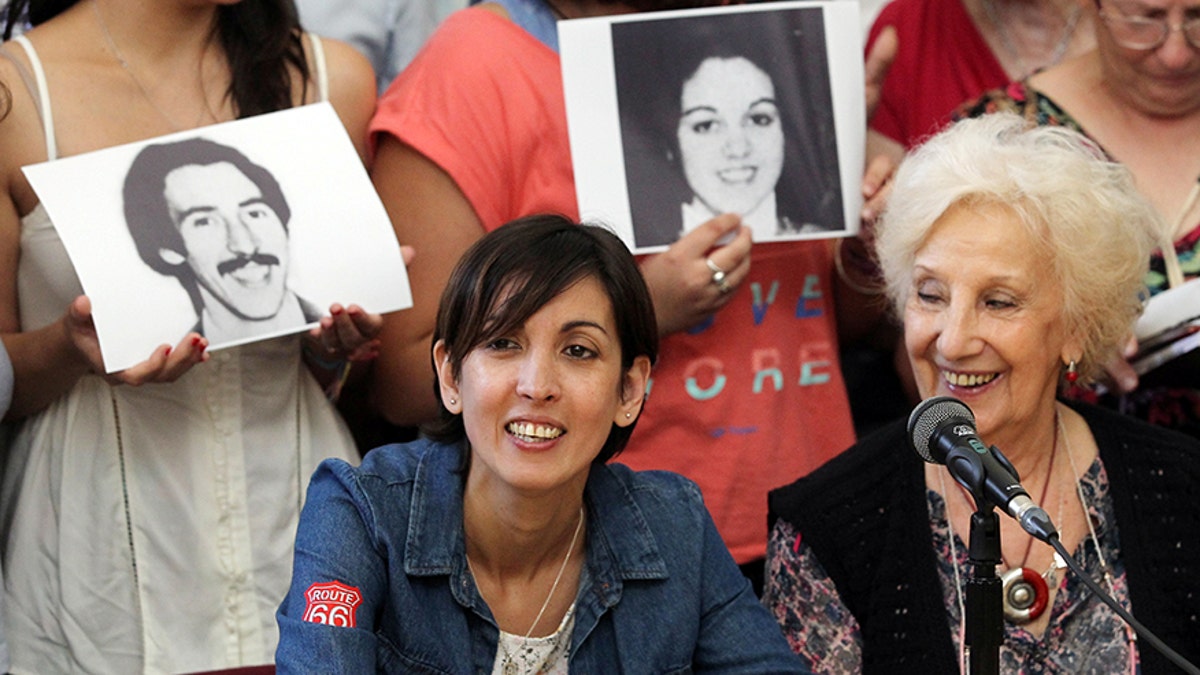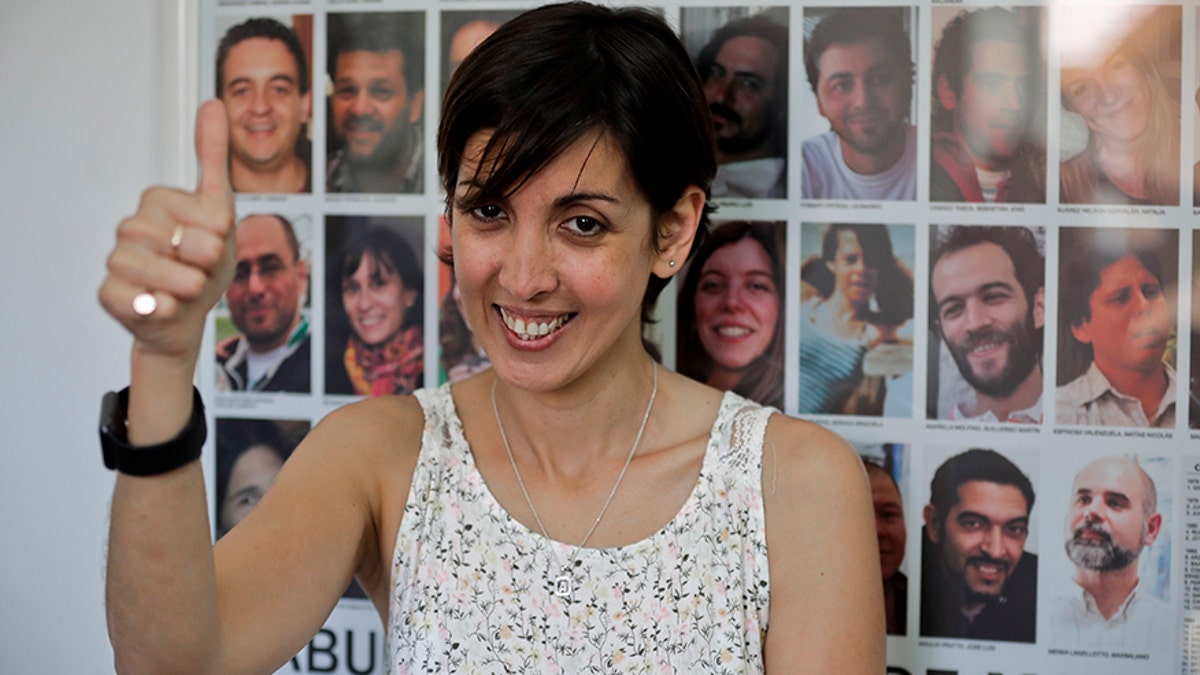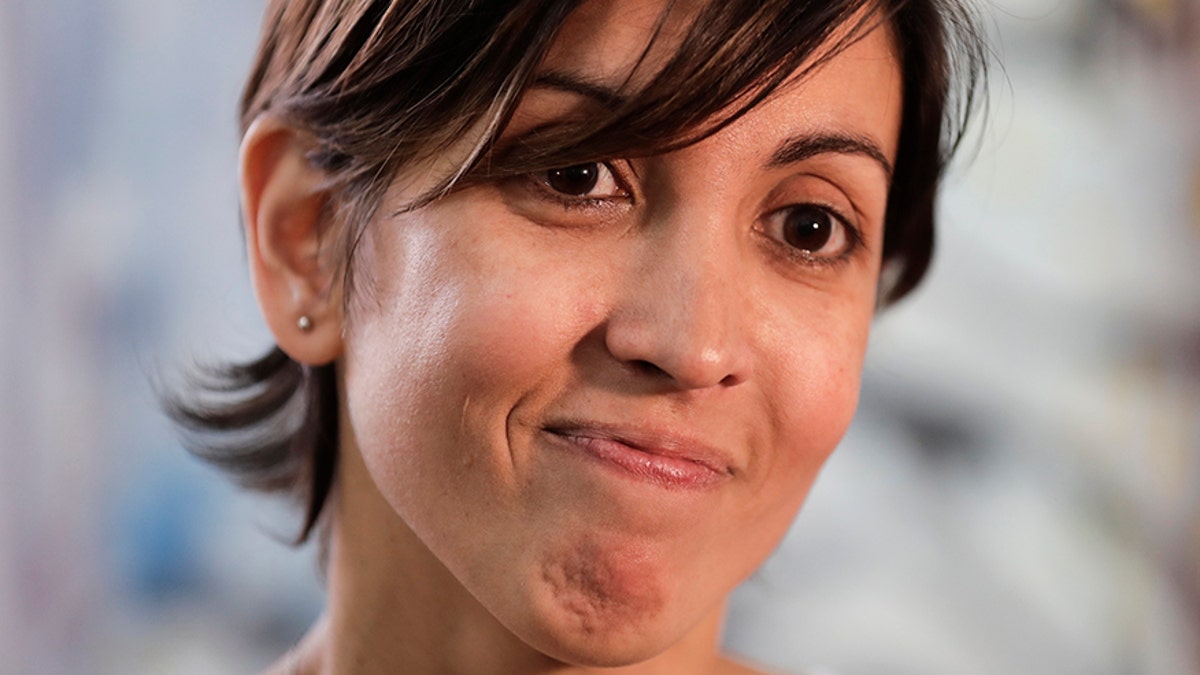
Adriana, who did not want to use her last name, was taken soon after her birth during the 1976-1983 Argentinian dictatorship. (Reuters)
A 40-year-old woman who was taken as a newborn from her mother in Argentina has been reunited with her relatives thanks to a DNA test that helped identify her.
Adriana, who didn't want to use her last name, is one of the hundreds of children who were victims of the country’s “Dirty War.”
With the help of the group Grandmothers of the Plaza de Mayo, she was able to match her DNA to the relatives of her parents, who disappeared under Argentina’s military rule, the BBC reported.
Adriana is the 126th child identified by the group.

DNA found that Adriana, 40, is the biological daughter of Violeta Ortolani and Edgardo Garnier. (AP)
According to records, Adriana is the daughter of Violeta Ortolani, 23, and Edgardo Garnier, 21, who were part of a left-wing student group in the city of La Plata.
Ortolani was detained by military in December 1976 when she was eight months pregnant. Adriana was born in captivity a month later.
"Love is stronger than hate, always."
Garnier was detained in early 1977 while he was searching for Ortolani. They were never seen again.
Some 30,000 people disappeared during the period of brutal military rule between 1976 and 1983.
Adriana told reporters Tuesday that when the couple who raised her passed away, she was told that she was not their biological child. It got her thinking maybe she was a missing child from the “Dirty War.”
“I found out on a Saturday, and on the Monday, I had already gone to the Grandmothers, I wanted to know if I was the daughter of people who disappeared, more than anything because of the date of my birth,” she said.

Adriana, who did not want her last name published, said she has talked to her grandmother since DNA tests proved her identity. (AP)
On Monday, four months after taking the DNA test, the National Commission for the Right to Identity called saying they had information. She said that during a lot of the waiting period she began to think her parents had abandoned her.
However, she said she discovered she was “a person that was wanted, searched for and I have a beautiful family.”
“I have a grandmother at 40 years old, I cannot believe it,” Adriana said. “Today I got to speak with her and I love her. They showed me a photo of her and she is beautiful. She is beautiful inside and out. Love is stronger than hate, always.”
The Associated Press contributed to this report.




















